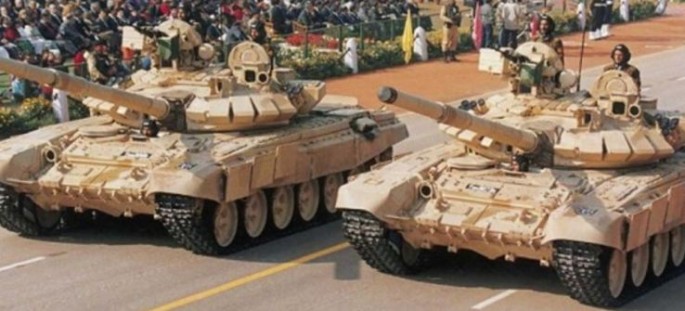Newly-appointed Chief of Army Staff (COAS) Lt. Gen. Bipin Rawat said the Indian Army is prepared to simultaneously fight a two-front war against Pakistan and China, a statement that left some Indian military observers shaking their heads in incredulity.
"As far as armed forces are concerned, we are tasked to be prepared for a two-front war and I think we are capable of carrying out our task in whatever manner that we may be asked to do by the political hierarchy," said Gen Rawat.
"We want peace at borders because civilians lose the most."
Gen. Rawat said while India and its army want to maintain peace and tranquility at the borders with China and Pakistan, it will not "shy away" from using its power in any form.
He also noted the dynamics of terrorism is constantly changing, and said the army has to think ahead to counter new terrorism threats.
"The fact that terrorists infiltrating from adversary's (Pakistan's) side means that they are getting support from them (Pakistani forces)," Gen. Rawat pointed out.
"We also have to think ahead, and ball has already been rolling in that direction."
While affirming the army's capability to fight twin campaigns at once, Gen. Rawat also hammered home the need to look at cooperation and not confrontation with China.
His remarks about India follow Chinese apprehensions about India's recent successful test of its Agni-V nuclear ballistic missile that can hit targets anywhere in China.
India on Dec. 26 conducted a fourth successful test of its Agni-V intercontinental ballistic missile (ICBM), a road mobile, canister-launched weapon capable of delivering its payload of nuclear MIRVs (multiple independently targetable re-entry vehicles) to targets anywhere in China.
Agni-V is a missile designed to destroy targets in China with nuclear warheads.
This was the second test of the canister-launched version and will now pave way for user trials of the missile by the Strategic Forces Command (SFC), which is responsible for the management and administration of India's tactical and strategic nuclear weapons stockpile.
Gen. Rawat's claim the army can fight two wars at the same time strikes some experts as more of a morale booster given the facts on the ground.
The People's Liberation Army Ground Force is nearly 2.5 times larger than the Indian Army. The People's Liberation Army Navy and People's Liberation Army Air Force are two times larger than the Indian Air Force and the Indian Navy.
India, however, does better against Pakistan. The Indian Army's strength is around twice that of the Pakistan Army. The IAF is 1.6 times bigger than the Pakistan Air Force while the Indian Navy is around three times stronger than the Pakistan Navy.
Military experts calculate that for India to put up noteworthy resistance in a two-front war, the number of men and their equipment in the Indian Armed Forces will have to be increased by at least 50% percent.
This process might take at least 20 years to complete, not to mention massive amounts of funding.



























